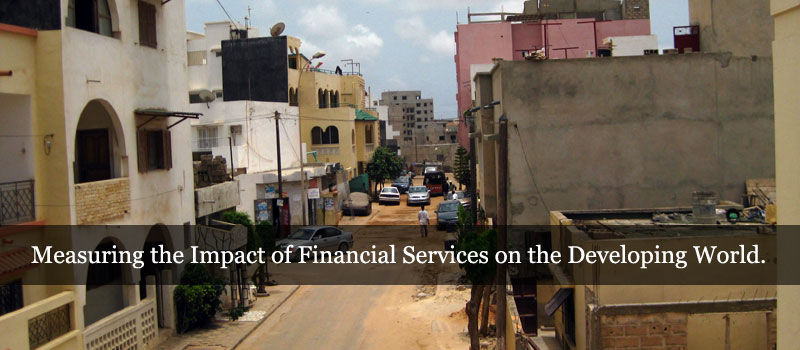Research Programs
Below is a brief overview of each of the Gates-funded grants addressed by this project. Please see each organization's website for further information. We engage with each of the grantees in an iterative process in designing the research. As such, the following research descriptions may change.
Aga Khan Agency for Microfinance
The design and delivery of new types of microinsurance and savings services in Pakistan. Research questions include:
- Is the AKAM business model for providing hospital insurance to low-income people financially viable over the long term?
- Is the AKAM hospital insurance business model (including underwriting, marketing, selling, administering, claims control and processing, and coverage for quality hospital care) scalable and replicable?
- Does the AKAM hospital insurance business model reduce the vulnerability of low-income households?
Opportunity International
The expansion to rural areas using new delivery channels such as mobile banks and point of service (POS) devices to offer savings, credit, and payment and transfer services in Malawi. Research questions include:
- Who accesses formal and informal financial services?
- What is the net value added to OIBM and its clients: Has the innovation helped provide more effective formal financial services for existing users of financial services? Has it increased uptake of formal financial services by previous non-users?
- If value addition occurred, why? Is it due to a reduction in transaction costs, and/or improvement in welfare—such as an increase in asset levels, better food security and ability to manage household related shocks—and better household participatory decision making?
Pro Mujer
The introduction of tailored products (an entrepreneur loan, an agro-commercial loan, and a youth product) to new markets in Peru. Research questions include:
- Can financial products and services tailored to specific market segments increase the breadth and depth of outreach of Pro Mujer Peru?
- Can financial products and services tailored to specific market segments increase the sustainability of Pro Mujer Peru as an institution?
Freedom from Hunger
The introduction of health protection services designed to complement existing financial products and health education. Since Freedom from Hunger's grant includes a substantial impact assessment component, the IRIS Center and Microfinance Opportunities are reviewing the design of the research and methodology.
Unpacking the Impacts of Technology Enabled Agent Banking: The Case of Kenya
The IRIS Center and MFO have begun a new and innovative study addressing "how" and "why" technology enabled agent based banking (popularly known as second generation banking or 2G) is adopted, used, and causes major socio-economic outcomes at household and community levels. The study questions include:
- What are the effects of the adoption and use of 2G banking services on households in terms of their financial behavior and how does that affect their social and economic well-being (e.g., physical and financial assets, health, education, risk coping, gender equality)? Why and how do they occur through various causal and flow channels?
- What are the effects of the adoption and use of 2G banking services in a community in terms of norms, behaviors, social relations, and economic activities? Why and how do they occur through various causal and flow channels?
- How do the effects at the household and community levels interact with each other? (For example, does a change in community resources alter the outcomes and behavior of households and vice-versa?)
The findings from this study will feed into a specific learning agenda: The studies will serve as a guide to help the Bill and Melinda Gates Foundation and other donors and investors in their future efforts to support inclusive and efficient financial services for the poor.




